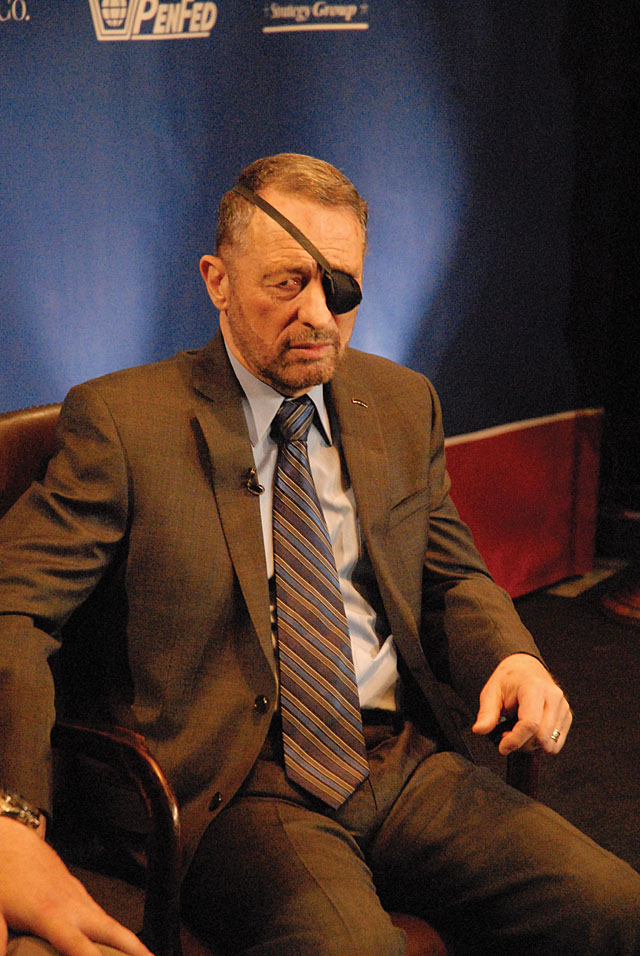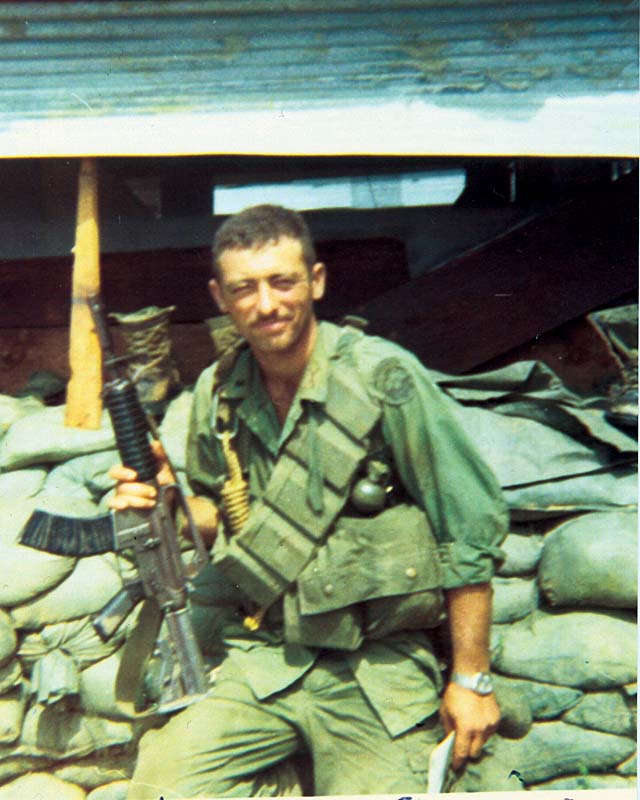 |
|||||||||||
|
Steve Maguire: Helping The Newest Generation BY RICHARD CURREY
He ran on curved metal blades that replaced his legs below the knee. To have reached that level of strength and mobility had clearly required many months at Walter Reed, months of painful therapy and re-training with focused persistence. Maguire, himself a wounded Vietnam veteran, directs the Soldier Family Assistance Center (SFAC) at Walter Reed. The young trooper I saw out on a morning run—and other service members like him with a variety of injuries and illnesses that span a wide range of severity—are served by Maguire and the SFAC. The SFAC’s mission is to support wounded, injured, or sick soldiers by helping their families navigate basic issues they will encounter when they travel to be at the bedside of their injured family member. The SFAC, among a range of services, manages lodging in nearby hotels, works to prevent administrative delays, and maintains overall conditions that facilitate the healing and recovery of injured service members. “In other words,” Maguire said, “we cut the red tape when we can. If we can’t, we steer families through the maze. We help folks figure out things that may be simple if you’re not experiencing incredible stress and distress—but when you’re dealing with a son or daughter with a grievous, life-altering injury, it’s a big deal just figuring out where to get a cup of coffee.” Maguire noted that, with his personal history, he’s a “unique fit for this job.” In 1969 Maguire, then a lieutenant commanding an Army Ranger recon platoon, suffered serious injuries—and lost his eyesight—when a booby trap blew. Maguire came to Walter Reed, exactly as the troopers some forty-five years his junior are doing today. “I’ve been through what these kids are going through—up close and personal,” Maguire said. “And I understand the agony their families go through.” Wounded warriors are, in Maguire’s words, “our customers. And I insist that my staff hew to a customer service model. Many of these soldiers—and Marines, sailors, or airmen—were prepared to give their all and have ended up sacrificing a great deal in service to their country. They not only need our help, they earned it.” Maguire’s personal journey is no less remarkable than that of some of the wounded warriors who now move through Walter Reed’s rehab programs. He graduated from high school in Connecticut and, already interested in an Army career, went to The Citadel—and flunked out. “A math course killed me,” he said. So Maguire enrolled at Mitchell College in New London, Connecticut, but left a bit shy of graduation. “That ended my 2-S deferment. I figured the draft would get me so I enlisted in the Army, did Basic and AIT, served as a PFC, and ultimately got a spot in Officer Candidate School. Coming out of OCS I asked for Airborne Rangers, and they gave it to me.” Maguire completed Ranger School and was ordered to Vietnam just as he made First Lieutenant. He ended up with the 6th Battalion, 31st Infantry, in command of a recon platoon. “I had some extraordinary experiences,” Maguire said. “This was my career, and I loved the job.”
Next came the surgeries, a brief but unfulfilled hope that his sight might return, a lengthy convalescence at Reed, and special training for the blind at a VA hospital. Along the way he met and married his wife of forty-two years, Susan, and, determined to master his obstacles, launched into a new life. Earning a Master’s degree at the University of Connecticut, Maguire became a mental health counselor and therapist. His career has taken him through several positions over some forty years, often as a therapist and clinical services administrator, before he was named to head the Walter Reed SFAC in 2007. “The Washington Post broke the story about some pretty awful lapses in service to soldiers here at Reed,” Maguire said. “There had been an earlier version of the SFAC, but it was obviously not very effective. I came aboard to re-invent.” Maguire said the key question driving a new SFAC was: What do the families of injured soldiers need? “We decided to answer that as comprehensively as possible, get those needs consolidated, and do a much, much better job of delivering those services.” Maguire described his dedication to the cause of soldiers’ recovery and their families’ needs. “I’m adamant that families get what they need,” Maguire said. “We work with our staff in terms of customer service, at understanding what families are experiencing, what the dynamics of their situation are, and how we can assist, from gift cards [emergency funds] to lodging to transportation to counseling services.” As we wrapped up our visit, Steve Maguire said, “You’ve got to feel like what you do in your job is sustaining, and this job certainly does. The SFAC represents a cultural transformation for the military—but it’s a necessary one. We have the leadership here at Reed that’s making it happen. I’m nearly sixty-seven years old now, but I clearly still have some work to do.”
|
|||||||||||
| |
|||||||||||
|
|||||||||||
8719 Colesville Road, Suite 100, Silver Spring. MD 20910 | www.vva.org | contact us |
|||||||||||









 I was talking with Steve Maguire in his office at the Walter Reed National Military Medical Center. It was a sun-washed morning in June and from the office window I saw a young veteran out for a run. The vet, supremely fit, glided along the street with effortless grace.
I was talking with Steve Maguire in his office at the Walter Reed National Military Medical Center. It was a sun-washed morning in June and from the office window I saw a young veteran out for a run. The vet, supremely fit, glided along the street with effortless grace. But in the immediate aftermath of his injury Maguire realized that his wounds were profound and his Army career was over. In that moment of raging pain and fear, Maguire attempted to kill himself with his rifle. His men gently pulled the weapon away, and Maguire was lifted into the dust-off chopper.
But in the immediate aftermath of his injury Maguire realized that his wounds were profound and his Army career was over. In that moment of raging pain and fear, Maguire attempted to kill himself with his rifle. His men gently pulled the weapon away, and Maguire was lifted into the dust-off chopper.